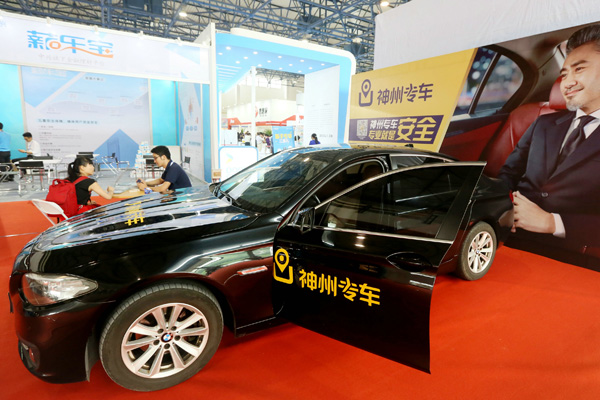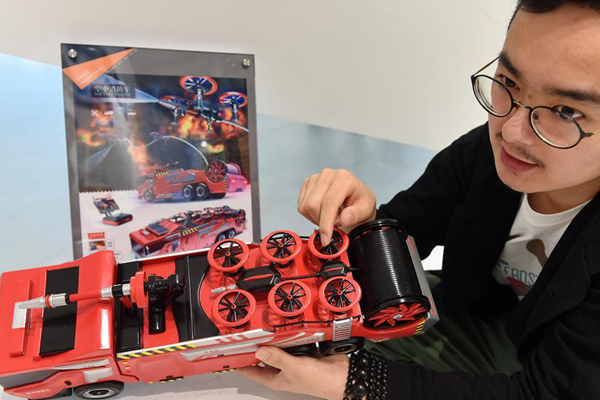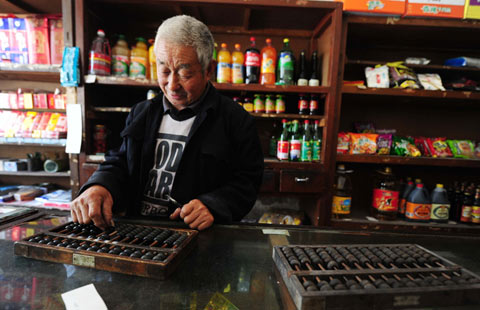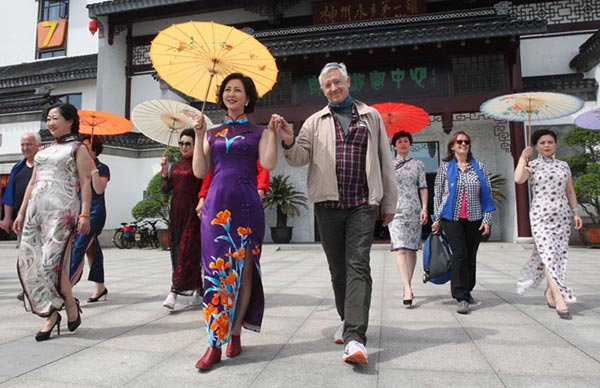Infusing premium quality into stylish four-wheelers
 |
|
The booth of CAR Inc at an expo in Beijing on Aug 4.[Photo by Lei Kesi/China Daily] |
The devil (or beauty, if you so prefer) is in the details indeed. The spotless gleaming black limo, the suit-tie-white gloves uniform, well-behaved drivers with loads of experience and full of social graces-China's chauffeured car services are meticulous about such details. And passengers such as Xiong Yuan appreciate them as they provide the "perfect" ride-hailing experience.
Xiong, 28, a Beijing white collar worker, has become a big fan of Shouqi Limousine & Chauffeur, a company that is dedicated to upgrading and standardizing traditional taxi industry in the digital era.
"Their service is very professional. If I have something important to do, I often book Shouqi's service because I trust their drivers to show up on time and drive me to my destination without getting lost or taking detours to make more money."
With their recent merger, Didi Chuxing and Uber China may have ended their years of cash-burning war for market share in China's ride-hailing segment, but the private transport industry is gearing up for the next phase of hostilities.
That will likely see professionalism and quality of service and rides as factors separating winners from also-rans and losers.
Which is why, Shouqi's strategy to challenge established players is anchored not in apps that connect any car, any driver and any passenger, but in quality.
Launched in September 2015, Shouqi offers exclusive and experienced taxi drivers qualified to provide cab services. Its cars are licensed. Their dimensions and other specifications conform to the strict draft regulations released recently by several major cities in China.
Not every player in the market can boast such a record.
Zhang Xu, an analyst with the Beijing-based internet consultancy Analysys International, said "The draft regulations of several cities appear to have the potential to sound the death knell for many ride-hailing services".
For, proposed rules like who can drive and what types of cars can be used as taxis on ride-hailing apps could disqualify many vehicles now in use as well as most of the current crop of drivers, throwing their firms out of gear.
"For now, it seems Shouqi enjoys an advantage in the context of the draft regulations," said Zhang.
PangDa Automobile Trade Co Ltd, a major car dealer in China, is going the Shouqi way already. The company announced in mid-October that it has received 5 billion yuan ($73.85 million) in financing to expand into the ride-hailing market via its app Dingding Yueche.
PangDa plans to leverage its resources as a dealer to offer cars and drivers as per the stipulations. The draft regulations have levelled the playing field, said Chang Ye, in charge of Dingding Yueche, in a recent interview.
Despite the challenge from new players, Didi Chuxing will likely remain firm in its top spot, more so because the recent merger with Uber China has given the combined entity about 90 percent of the ride-hailing market share, said Wang Xiaofeng, analyst with Forrester Research Inc.
The numbers too are in Didi's favor. For example, Shouqi owns merely 8,000 vehicles that offer an estimated 15 million rides per year, compared to Didi's 15 million registered drivers who offered 1.43 billion rides in 2015. Sales revenues are not disclosed, and some rides may have been through coupon redemptionsn and offers.
"However, it's only natural that with more competition comes more market vitality," Wang of Forrester said.

















